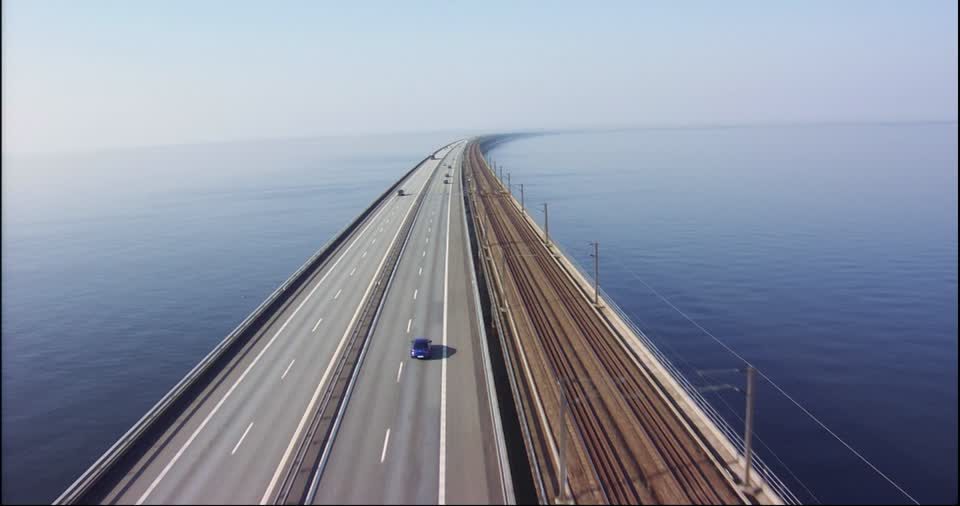Danish pocket wagon ban hits rail hard

The ban of pocket wagons on semi-trailers in Denmark is still ongoing, causing immense issues to the intermodal and broader rail freight sector. The ban that was supposed to last around three weeks is now in place for three months already, and operators active in Scandinavia are pounding the alarm since their viability is in jeopardy. Skanerail, a rail operator connecting Coevorden in the Netherlands with Malmö in Sweden and among the most heavily impacted companies, shared the struggles and uncertainty it faces.
The pocket wagon ban initially started from Denmark’s Great Belt Bridge after a safety incident on 13 January involving one of DB Cargo’s trains. Then, around 27 January, it applied to the country’s whole since investigations concerning the incident’s cause had not been concluded. Companies like Hupac, DB Cargo Scandinavia and Hector Rail immediately expressed their concerns over the impact that such a move could have business-wise.
Shortly after, Akos Ersek from UIRR described in RailFreight Live the weekly losses of operators due to this development. Only in early February, just a couple of weeks after the ban, operators collectively lost around one million euros per week. Currently, a few months later, the situation seems to constitute a dead-end for companies that are subject to a survival race.
Scandinavia cancelled
One such company affected is Skanerail. After years of hurdles, it had managed to establish a stable three times per week connection with Malmö. As of 1 April 2021, the company was planning to add one extra weekly service on the corridor with the potential of reaching five trips per week if it proved stable. However, the pocket wagon ban overturned all its plans, explained Henri Leemans, who established the connection.
Due to the restrictions, Skanerail didn’t manage to add more itineraries to its schedule. On top of that, it faces significant problems with its existing connections that struggle on the limit of unfeasibility. As Lambert van Dieren from Skanerail explained, the company still has three weekly connections to Malmö. Even so, they are never fully loaded since the maximum capacity they reach is about 60 per cent. Volumes of transported containers also reach an all-time low with just 55 per cent of capacities utilised. Understandably, these facts translate to substantial financial losses.
Losses, higher prices and inadequate alternatives
As van Dieren highlighted, the pocket wagon ban costs Skanerail almost 10,000 euros per week. During its 12-week duration, the ban has caused the company losses equal to 200,000 euros. Alternative routes through Belgium or Duisburg do not make any difference in the situation, Leemans explained. In contrast, they bring more expenses (almost 250 extra euros per trailer), they prolong transit times, require more resources, and undermine customer trust in the services.
The Danish authorities do not keep a clear stance on when or whether operations will return to normal. “They ask as to be patient and wait longer until they come up with a result”, said van Dieren. Indeed, even after contacting them, the Danish authorities did not provide any concrete insights on the situation or even an estimation of what could happen in the future. They do not seem to realise the profound impact of the ban status, which “in three months has destroyed what companies have been building for 25 years”.
Calls for a resolution and re-opening
On their behalf, rail parties operating in this corridor have come together to compose a proposal to restore traffic. Kombiverkehr has proposed some specific measures to the Danish authorities to reconsider rail freight transit through the bridge. More precisely, the measures concern the sufficient insurance of loading safety, the correct loading and exit inspection from railway undertakings, operational restrictions according to wind speeds, and, last but not least, consistent wind measurements based on considering wind peaks and not average values.
The authorities have replied with their version of measures without considering the companies’ proposals and without a clear time frame concerning their implementation. Traffic could return end of April beginning of May, even though according to van Dieren this is quite unlikely to happen at all.
A long-term impact
As van Dieren mentioned, the ban’s impact is already long term since Skanerail and fifty more companies suffering losses will need lots of time to recover. Most importantly, though, the long-term implications on transport in Scandinavia are even more alarming. Intermodal transportation has experienced most of its disturbances in Denmark so far. This case, however, might completely exclude Denmark from the map of intermodal routes, van Dieren said.
Customers already try avoiding it to ensure efficiency for their shipments and prefer other alternatives”, added Leemans. That is why Skanerail’s services experience so many losses currently. “I have really fought for rail freight as a modality, but incidents like this do not help. In this way, it looks like there is always some kind of problem. We surely have lost customers in the last few months.”
The sector must now see how to keep business running in Scandinavia in a viable way. Understandably, this is a pretty challenging task, especially without the help of authorities. “It is unacceptable to hit the rail sector with such measures, and specifically in the context of EU that hasn’t taken any action to protect us”, concluded van Dieren.
Also read:
- Coevorden-Rotterdam shuttle to double services
- Denmark’s pocket wagon ban: one million extra weekly costs for operators
- Pocket wagon ban extends to all of Denmark
- Is the Great Belt Bridge a potential danger for pocket wagons?
- Semi-trailers banned from Great Belt Bridge again
You just read one of our premium articles free of charge
Want full access? Take advantage of our exclusive offer





